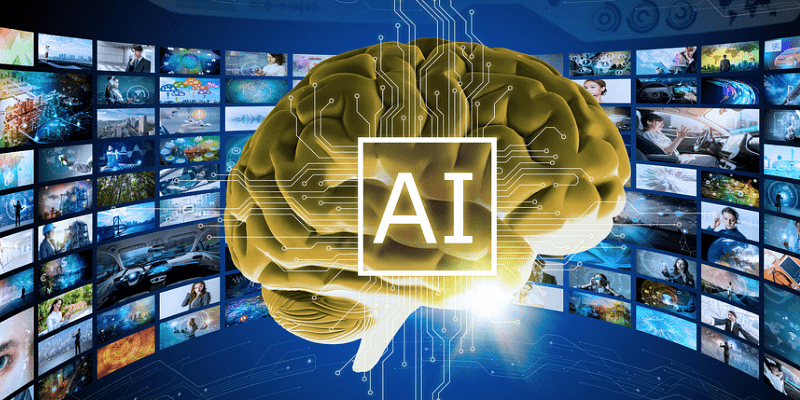Source – https://yourstory.com/
Technologies like deep learning, machine learning, and natural language processing are the next transformational wave for video production, development, and broadcasting.
Blistering progress, unparalleled success, and unmatched viability are just a few phrases associated with the infusion of AI across various industrial sectors. Artificial intelligence (AI) is at an important transition point in a world where technological advancements are at their finest.
The rate of growth of AI is extremely high such that the global artificial intelligence (AI) market size, valued at $27.23 billion in 2019, is projected to reach $266.92 billion by 2027, exhibiting a CAGR of 33.2 percent during the forecast period.
The upcoming boom in the video industry integrated with AI has shown immense progress. Technologies like deep learning, machine learning, and natural language processing are the next transformational wave for video production, development, and broadcasting.
Content that is truly “magnificent” can be time-consuming to create and often very expensive to produce. As it becomes costlier to produce content, it also becomes even more imperative to command the interest and attention of the audiences. AI augments the video asset pool to ensure that every type of audience is catered to and engaged across platforms.
How AI works?
AI can recognise individual content, generate autonomous clips, optimise video playback, and align advertisements and content based on viewer interests.
Some of its features are:
- Visual recognition
- Deep video analysis
- Translation
- Transcription and tagging
- Format adaption
These features are transforming our understanding of video content and as the AI learns more it evolves its models to have a more nuanced understanding of the elements of any content, making it much easier for teams to find the right content and make informed decisions on their utility, all backed by data.
Why is AI the future of video production?
AI has played a crucial role in bringing innovative and more efficient solutions to the video industry. It not only helps bring precision in the video content production but also enables a clear understanding of what interests the audience the most and delivers it as quickly as possible.
AI platforms can prove beneficial across various industries such as sports, media, entertainment, and many more that incorporate video as their primary content.
On an average, people watch almost eight hours of video content online in a week, which is growing by 16 percent YoY, fuelled by video consumption on social media platforms that receive 48 percent more views on an average than on other platforms.
In the age of explosion of content, smart solutions are needed to keep audiences engaged, and AI is at the forefront of it.
Using AI to create bite-sized-videos such as teasers, highlights, and web stories has helped content creators explore social channels and improve engagement significantly.
In addition, AI also streamlines post-production processes by reducing the time earlier spent on manually adding graphics, logos, and overlays on videos, ultimately leading to the creation of engaging content for the viewers increasing the speed to market. Interesting, isn’t it? How merely incorporation of a platform can do wonders.
AI makes it relatively easy for organisations to produce new video content quicker and lets them focus on more important matters such as producing more quality content rather than spending that important time on time-intensive manual analysis of videos.
AI also moderates the risk of launching new products/technologies on the market. For instance, IBM produced a horror movie trailer called Morgan using artificial intelligence. To cull out the list of spectacular moments for the trailer, the research team trained the AI system on scenes from 100 horror movies, which were analysed based on their visual and audio effects.
The trailer released in 2016 took 24 hours to create after Watson provided the filmmaker 6 minutes of carefully selected footage. Traditionally, this exercise would have taken anywhere between 10-30 days.
Conclusion
AI and ML have their own uncharted terrain and challenges, but they are positioned for greater objectives with incomparable proficiency. Artificial intelligence will continue to be a major technological asset for growing the popularity of video services as it necessitates using more effective and reliable video quality measurement and analysis techniques and charts a more interactive experience for the end-user.
Broadcaster, OTT platforms, content creators, and social media platforms are at the precipice of a great age of communication, which is going to be led by video content, and to make sense of this inevitable explosion of content, new-age technologies will need to be embraced, none more important than artificial intelligence.
